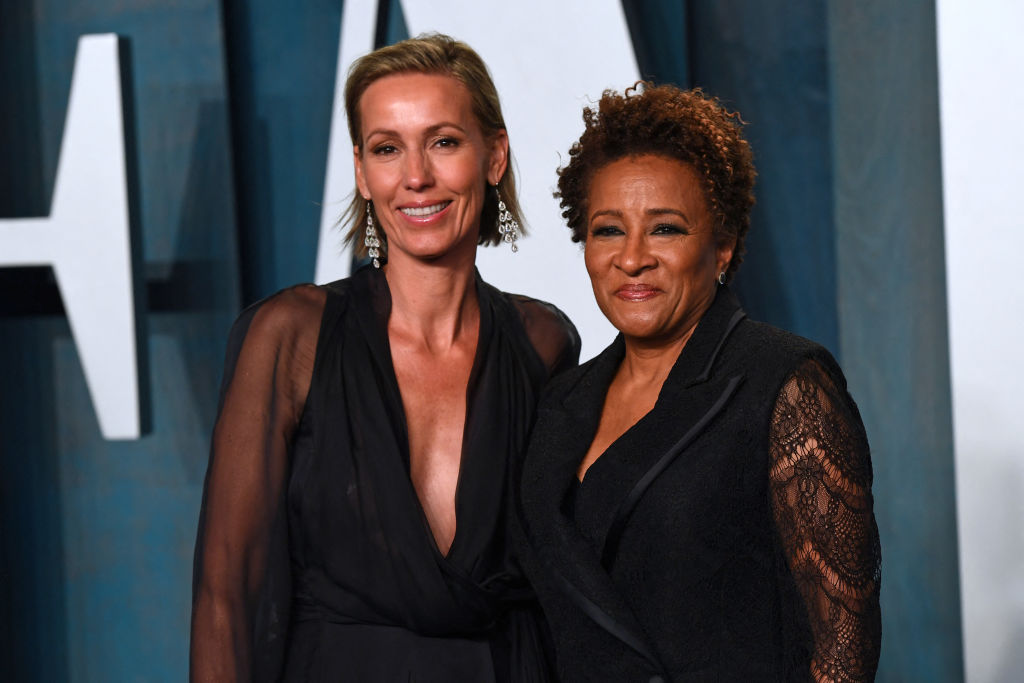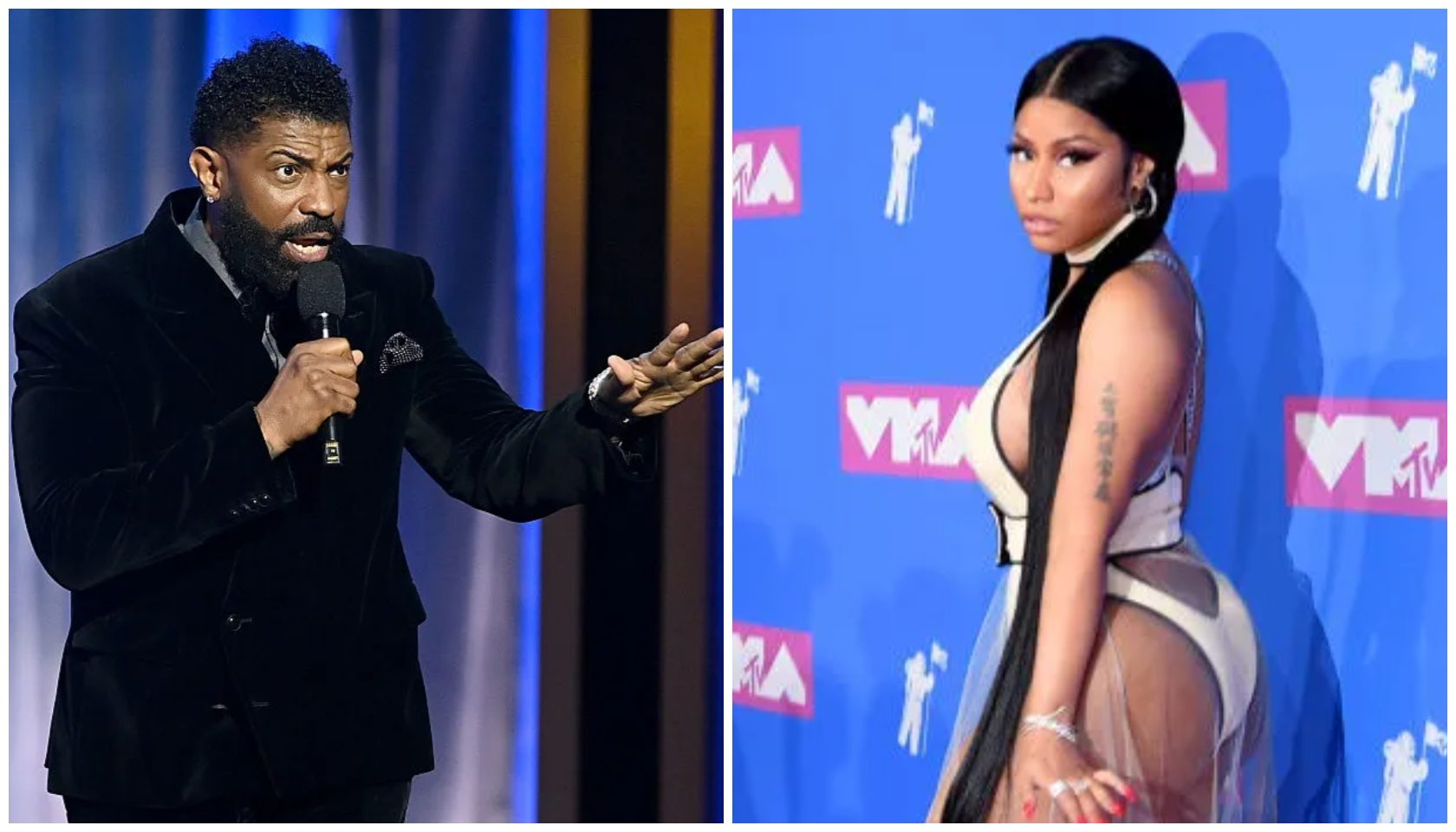The Real Reasons Men Mature Slower Than Women
Share the post
Share this link via
Or copy link

Source: Adene Sanchez / Getty
I noticed this funny phenomena happening amongst my friends recently. I’ve had several female friends in their early thirties break up with a man they’d been dating for a year or two—a man who just wasn’t giving them what they needed emotionally—only to have that man come back with some speech about being ready for a life partner or finally recognizing the value in a meaningful relationship. This has seriously happened to four of my good female friends in the last couple of years. I could sum up all of the speeches these men gave into pretty much the same message and that message is this: I just grew up, and realized there’s value in meaningful relationships. Honestly, it all makes perfect sense to me. All of these women are dating men in their mid thirties, which is around the time guys start to realize there’s more to life than drinking until blackout with friends and having random hookups. But why? Why do they realize this so much later than women? I have my theories.
Their celebrities are athletes
Men are taught to idolize athletes. When parents or teachers want to tell them about certain values or ethical codes, they will do so through stories about athletes. They’ll talk about some persistent baseball player who just wouldn’t give up. They teach work ethic and morals through athletic achievements.
Female celebrities are…not athletes
Some of the top female idols include Oprah, Princess Diana, Jacky Kennedy, Joan of Arc, Hillary Clinton, and Maya Angelou, to name a few. It’s no secret that these women were admired for their vulnerability, their ability to connect with people, their dedication to their ethical code, and their incredible artistic and communication abilities. They aren’t admired for how many home runs they’ve hit.
Their films/books are about crime
Love MadameNoire? Get more! Join the MadameNoire Newsletter
We care about your data. See our privacy policy.
Look at some of the most popular young adult fiction for men. It’s either about solving crimes, fighting crimes, or even committing crimes. Detectives, super heroes, and car thieves seem to be the subjects of books and films targeted at young men.
Female media is about something else
“Twilight”, “The Sisterhood of the Traveling Pants”, “The Giver”, “The Hunger Games.” These books are about human connection. They’re about putting loyalty and love over all else.
They’re teased for liking girls
What happens when a young male’s friends suspect he likes a girl? Or see him even talking to a girl? He’s made fun of. He’s the butt of their jokes for the rest of the week.
Girls find love exciting
From a young age, when girls have crushes, they share them with each other. If a girl kisses a boy or even holds a boy’s hand, she rushes to her friends to tell them, and they’re all excited for her—jealous, in fact!
Boy activities involve physical activity
Let’s look at which after school activities boys are encouraged to join. Sports. Karate. Boxing. Anything that involves lots of physical activity and little talking (other than making game plans with the team).
Girl activities involve…
Photography, short story writing, journaling, theater, dancing, arts and crafts…See a pattern, here? Sure, progressive parents encourage their kids—of any gender—to pursue any activity they like. But kids usually feel pressured to do whatever their peers are doing, and with most parents still pushing for gender-conforming activities, most kids are still following suit, too.
Rambunctiousness is applauded
What happens when a boy acts up? When he misbehaves? Sneaks off campus? Steals something? Vandalizes property? Gets into a fight? His friends praise him as their leader. Not caring for the wellbeing of others is almost applauded. Not caring about how one’s actions affect others seems to be awarded.
Girls don’t praise misbehavior
Sure, some girls act up. But you often don’t find that the most popular girl in school is the one who vandalizes property or picks fights. Girls don’t earn the respect of their peers by doing that, but boys do.
Discussing feelings is reprimanded
When young men tell other young men that they hurt their feelings…well, it kind of doesn’t happen. They would be teased to no end. Admitting emotional vulnerability is looked down upon.
Girls can communicate
Girls tell each other all of the time that their feelings are hurt or that they’re sad. Their peers don’t tease them for it. They aren’t called “cry babies” or “too sensitive.” It’s considered normal for females, from a young age, to express their feelings.
Notches in the belt are applauded
Slay, smash, hit it—these are all the things young men encourage each other to do with women. “You should marry her” is not really something one young man says to another, about a woman they spot in a bar. Men are taught from a young age that sex is the goal.
Nobody cares about a woman’s number
Females are not impressed with other females for having tons of sexual partners. Actually, sometimes women who are promiscuous can be judged (it’s not fair, but it shows you how vastly different the female to male experience is).
Career success pressure
The moment a man graduates college, all questions directed to him are about how much money he’s making, what his five-year plan is, and what his career goals are. Men are taught that their careers should be in order, before anything else (like relationships).
Women receive less pressure
For better or for worse, people don’t tend to focus as much on the career stuff with women. If you pay attention, you’ll notice young women get more questions about their personal life. They get career questions too—of course—but they’ll also get lots of questions about their dating life.
-

Meet Dominique Fils-Aimé, The Haitian-Canadian Star Redefining Jazz For A New Generation: ‘This is My Vision' [Exclusive]
-

Cooking With Purpose — How Brittney Williams Honors Her Caribbean Roots Through Food
-

9 Famous Lesbian Women Who Were Married To Men
-

Purpose Behind The Lens: How Nate Edwards Films The Extraordinary Inside The Everyday








